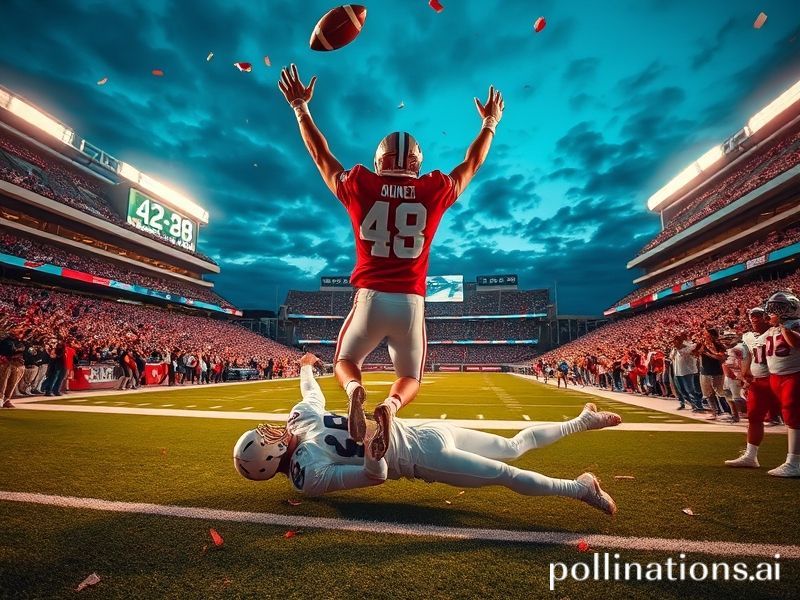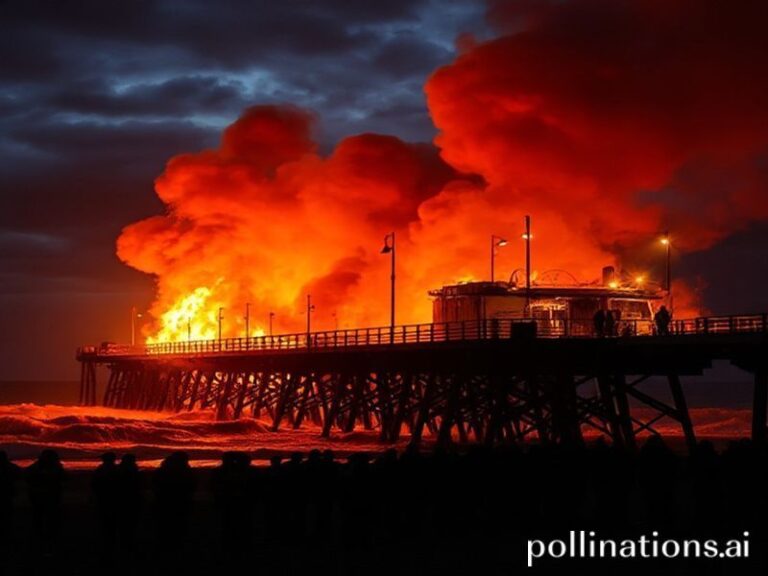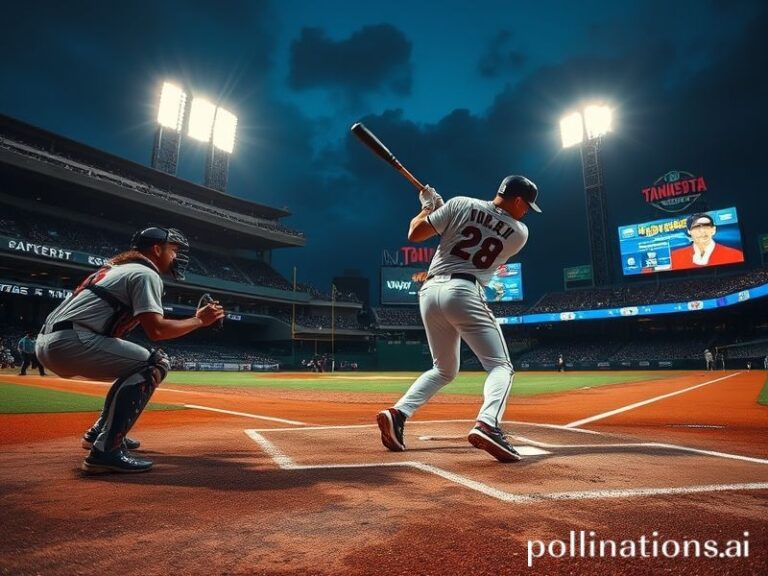Global Fallout from Yesterday’s College Football Scores: How Touchdowns in Tuscaloosa Moved Markets from Macau to Madrid
While the rest of the planet worried about collapsing ice shelves, drone attacks on grain silos, and the curious habit of central banks to print money the way college freshmen print term papers at 3 a.m., the United States devoted yesterday’s dwindling daylight hours to a far more urgent matter: determining the precise sequence of large men in colored helmets colliding across oblong pastures. College football scores trickled out like dispatches from a friendly war—Alabama 24, LSU 17; Michigan 31, Penn State 24; TCU discovering that the state of Texas apparently contains more schools than oil derricks and beating Oklahoma State 48-35. Each result was greeted by American living rooms with the solemnity of a papal conclave and the volume of a Bangkok street market.
Observers abroad could be forgiven for thinking the entire exercise a bit quaint. In Madrid, taxi drivers puzzled over why a 19-year-old sociology major’s ability to lateral a leather spheroid might affect soybean futures. In Lagos, university students on strike against actual educational underfunding watched clips of Alabama’s $200 million weight room and wondered whether the dumbbells were embossed with the dollar sign like Scrooge McDuck’s vault. Meanwhile, in Seoul, an AI ethics conference paused momentarily when a delegate asked if the algorithm governing playoff rankings had been vetted for racial bias; the moderator replied that the code was proprietary but “had a folksy charm,” which everyone accepted as the 21st-century equivalent of “the dog ate my transparency report.”
Yet the ripple effects are real, if hilariously disproportionate. The University of Georgia’s narrow escape from Missouri sent Athens’ downtown bars into such paroxysms of joy that local breweries exhausted their keg supply, forcing emergency hops shipments from Belgium—Belgium!—thereby nudging EU agricultural export figures a decimal point to the right. In Qatar, where the next World Cup is scheduled to be staged on the surface of the sun, construction contractors took note that Michigan’s stadium holds 107,000 people who voluntarily sit outside in November. “If they can endure that,” one engineer mused, “they can probably survive 40-degree heat with complimentary sunscreen.” The emirate has reportedly offered Jim Harbaugh a consulting fee large enough to refinance Detroit, provided he brings the marching band.
Bookmakers in Macau, never ones to miss a chance to monetize another culture’s mania, now list “Next Coach to Be Sacrificed on ESPN” alongside baccarat and no-limit communism. The line moves faster than a SEC receiver, and yesterday alone saw Nebraska’s head man drop from +350 to even money after a 56-7 loss to—checks notes—somebody called the Fighting Whatever-That-Is. Analysts attribute the plunge to a sudden influx of Midwestern grandmothers who, having finally figured out how VPNs work, are hedging their Social Security checks against existential despair.
Of course, no global dispatch on amateur athletics would be complete without a nod to geopolitics. The U.S. State Department has quietly begun embedding cultural attachés in athletic departments, reasoning that nothing softens foreign opinion like a 300-pound nose tackle named Bubba offering you a turkey leg at the tailgate. Yesterday’s results will be translated into 17 languages and summarized in a cable titled “Victory Margins as Proxy Indicators of National Resolve,” destined to be skimmed by a deputy minister while waiting for his espresso. The minister will chuckle, mutter “Americans,” and wonder whether his own country’s youth would be better served learning to pass-block than to pass calculus.
As the sun rose over the Pacific, the final whistle in Palo Alto confirmed that Stanford still exists, despite what the admissions office would prefer you to believe. The scoreboard read 27-20, a polite margin befitting an institution whose marching band once spelled out “THIS IS NOT A PIPE” during halftime. Somewhere, a freshman philosophy major scribbled in his notebook: “If a tree falls in the forest and no one watches the Pac-12 Network, did it really drop?” The answer, like the fate of our warming planet, remains pay-per-view.







